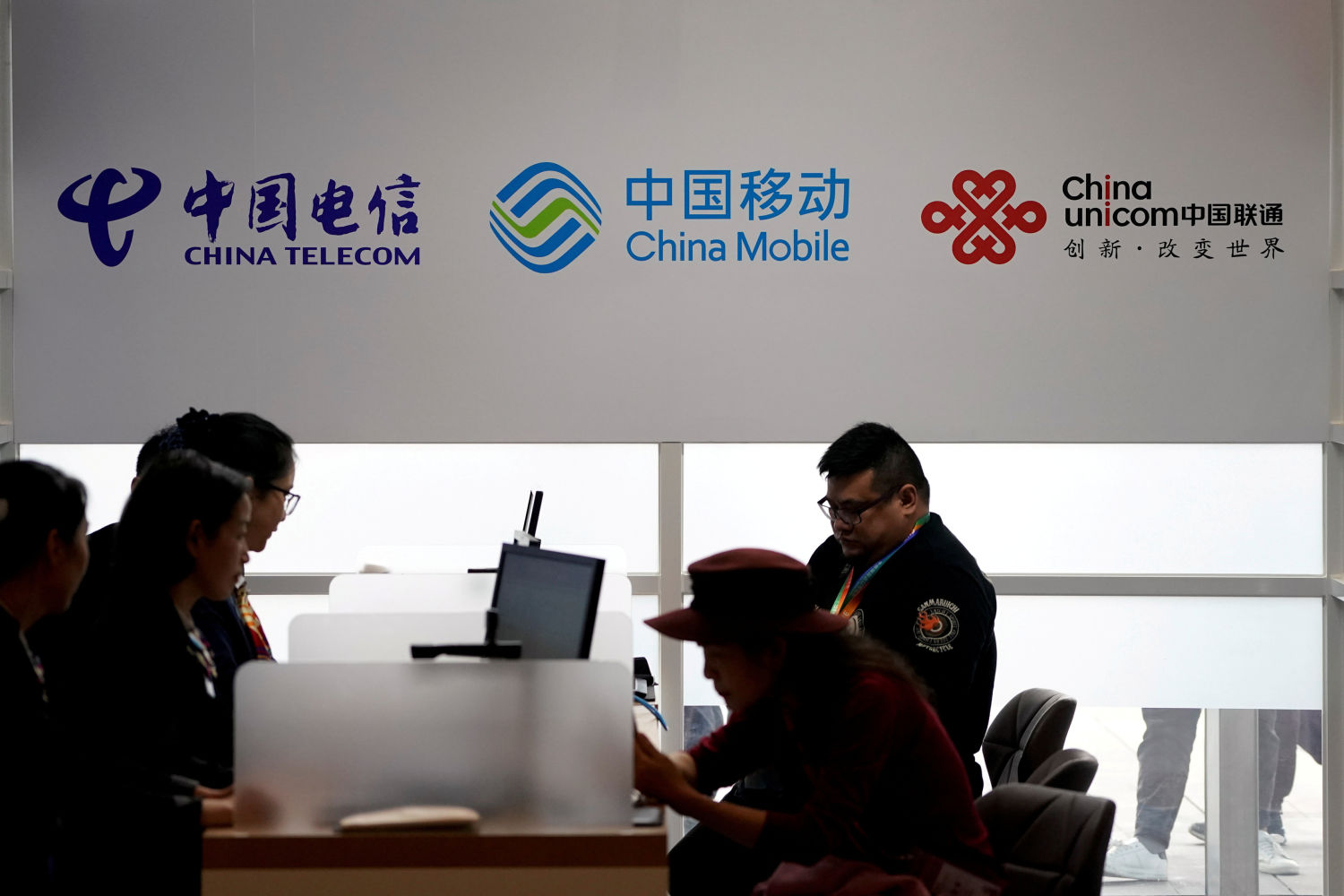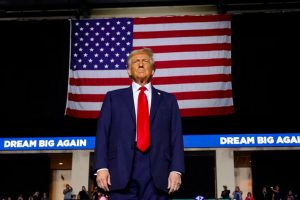(ATF) Global index providers MSCI and FTSE Russell said they would cut three Chinese telecom companies from their benchmarks in response to a US investment ban, slashing their share prices in trading on Friday.
The deletions add to the companies already cut from world indexes because of the ban and require passive investors, such as index tracking funds, to sell the stocks.
FTSE Russell plans to delete China Mobile, China Telecom and China Unicom (Hong Kong) from the FTSE Global Equity Index Series, the FTSE Global China A Inclusion Indexes and other indexes as soon as January 7.
MSCI said it would remove them today (January 8).
Shares in the three companies fell heavily on Friday in Hong Kong morning trading, wiping out nearly $10 billion in value by the midday break in Hong Kong but the shares recovered later, and the losses totaled about $5.6 billion at the end of trading. China Mobile dropped at least 6% early in the day, while China Telecom and China Unicom both plunged 7.8%. However, the broader Hang Seng index rose 1.2%.
The deletions are the latest moves in a twisting saga for the New York Stock Exchange (NYSE) after it announced plans to remove the firms, reversed course temporarily, then finally reverted to its initial decision.
The delisting fiasco has highlighted the challenges faced by exchanges, clearing houses and index providers of getting caught up in conflict between the US and China.
“In terms of the US-China relationship, the NYSE delisting increases uncertainty in the near term,” said Christian Keller, head of economic research at Barclays in London.
The NYSE attempted to shift some blame for the bizarre chain of events without provoking further interventions from officials in the Trump administration, who seem determined to make a transition to a new China policy as difficult as possible for incoming president Joe Biden and his team.
ADR set for removal
“If you’re a passive index provider, of course, you need to get out of the way,” Kay Van Petersen, global macro strategist at Saxo Capital Markets in Singapore, said. “And obviously if you’re active and you know the index providers are going to have to get out of the way, you’re not going to just be sitting around while something is getting sold off.”
The index deletions are in response to an executive order from outgoing US President Donald Trump last November banning Americans from investing in Chinese firms that Washington deems to have links with China’s military from November 2021.
FTSE had already removed 11 other companies from its indexes and MSCI had cut nine. The New York Stock Exchange said it would delist US-traded American Depositary Receipts (ADR) of the three telecoms on January 11.
The latest deletions followed the US Treasury clarifying that the investment ban extends to subsidiaries with similar names to the 35 companies on a US Defense Department list of Chinese companies it says have links to the People’s Liberation Army.
‘Oppression’
China has described the US moves as “oppression”. Foreign ministry spokesman Hua Chunying said the NYSE was “seeding chaos in the capital markets”, adding: “China’s stance on this issue is very clear. The US will only end up hurting its own interests, credibility and image. The global status of the US capital market and people’s confidence in it will also be eroded.”
Analysts doubt that the presidential transition in Washington would prompt a rethink over delistings. “With a Biden administration, we believe that the relationship between the two countries could remain under pressure,” said Kai Kong Chay, senior portfolio manager, Greater China equities, at Manulife. “As such, we will adopt a wait-and-see approach in order to assess how the situation develops.”
Some analysts said the delisting of Chinese companies from US exchanges were likely to boost the Hong Kong stock market.
“Chinese ADR companies with large market caps would consider a secondary listing in Hong Kong,” Bruce Pang, research analyst at China Renaissance Securities, said.
“For Chinese ADR companies with comparatively smaller market caps that are considering listing in Hong Kong or mainland China, we believe the best option for them may be a voluntary delisting from the US before a primary listing in Hong Kong, or on the A-share market,” Mr Pang added.
S&P backtracks
S&P Dow Jones initially said it would remove the three Chinese firms from its benchmarks effective on January 7, then reportedly reversed policy in line with the NYSE. It is now expected to fall back into line with the NYSE and US government guidance, but S&P Dow Jones did not reply to a request for comment by ATF.
Other index providers have also been reacting to Trump’s executive orders, though at differing paces.
FTSE Russell on Tuesday withdrew another three Chinese firms from its indices, on top of eight companies that had already been removed. And MSCI announced in December that it was deleting an array of Chinese companies from its indices.
Index providers try to project an air of consistency and adherence to their own rules when pitching their products, but there is often a discretionary element to decisions that has been underscored by the Trump executive orders, or market developments such as the extraordinary rise in the value of electric vehicle maker Tesla last year.
The chaotic nature of policy making by the Trump administration has posed a unique challenge. His move on Tuesday to ban transactions by eight Chinese apps, including Alipay and Tencent’s QQ, means that these companies, as well as officials at the US Commerce department, the incoming Biden administration and the courts, will also have work out how to manage the ramifications of that executive order.
“It seems like the dying days of the Trump administration will feature more last shots at China, like the Alipay ban,” said Jeffrey Halley, senior Asia Pacific market analyst at foreign exchange brokerage OANDA. “Of course, that assumes that he has anyone still left working for him to enact his ordinances.”
The Trump administration is considering adding tech giants Alibaba and Tencent to a blacklist of firms allegedly owned or controlled by the Chinese military, two people familiar with the matter said, according to Reuters. Such a move that could inflame tensions with Beijing days before Biden takes office.
























